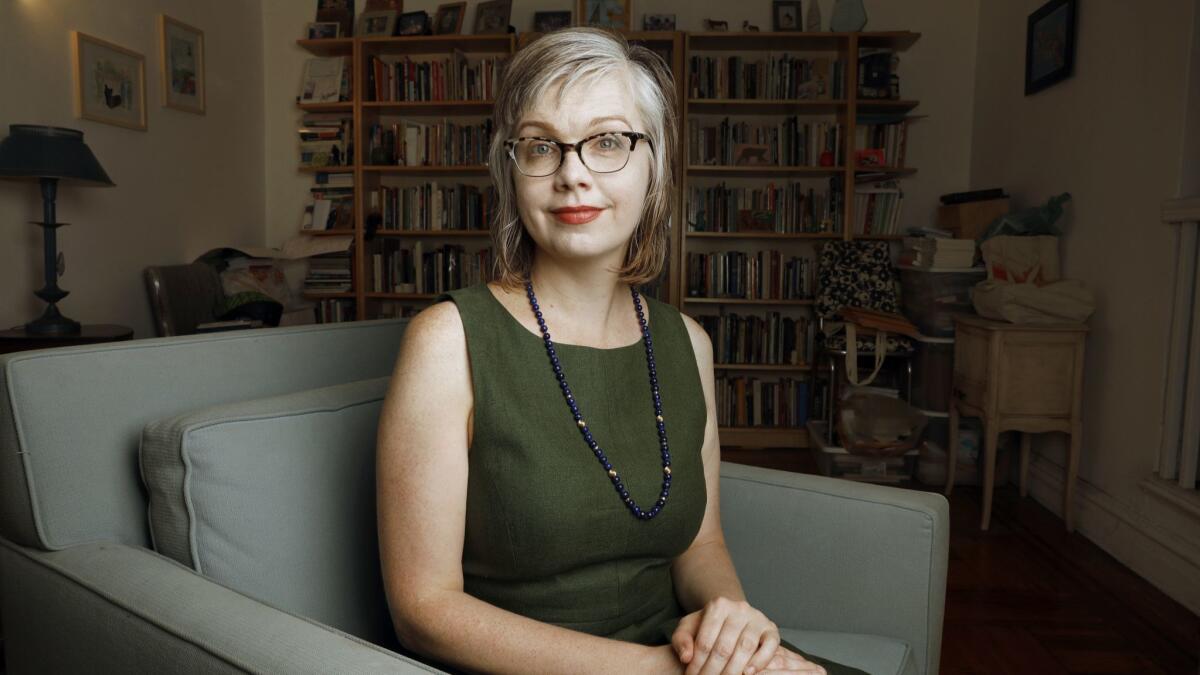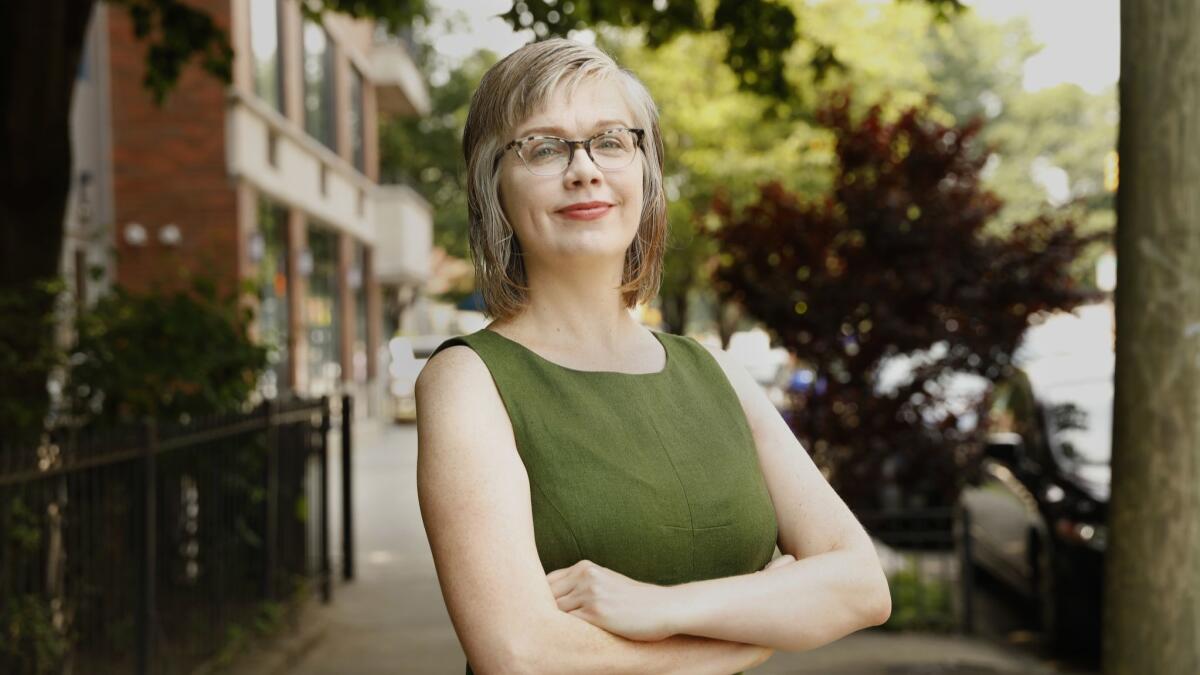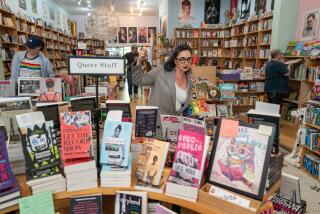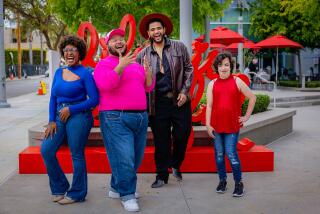Lambda Literary celebrates LGBTQ books and writers

In 1995, Sue Landers needed a job. The 24-year-old was pursuing her MFA in poetry at George Mason University in Washington, D.C., and needed to support herself while she was in school.
She was also a recently out queer woman.
“I was seeking my community,” says Landers, now 46, the author of three poetry books and the incoming executive director of Lambda Literary, the leading LGBTQ literary organization in the U.S.
“When I looked for work to support myself as I was going to school, I really wanted to be in a validating, affirming, supportive place, something I think a lot of young book lovers and young queer people desire.”
Lambda Literary, a national organization headquartered in Los Angeles, traces its roots back to that D.C. bookstore, Lambda Rising, where Landers worked in her mid-20s.
The store, the journal and the annual awards the organization is most well-known for — the Lambda Literary Awards or “Lammys” — were all the result of L. Page “Deacon” Maccubbin’s entrepreneurial efforts.
Now retired, Maccubbin describes himself as someone with a knack for dreaming up new projects and getting them off the ground.
“I like starting projects and then turning them over to other people to let them grow. For instance, I founded Gay Pride Day in Washington, D.C., in 1975 and sponsored it for the first five years. It grew from 2,000 people to 10,000 people and then at that point I turned it over to a nonprofit foundation to run. It still draws a quarter of a million people every single year. I guess I was always interested in incubating projects and ideas, but not necessarily sticking with them ’til the bitter end,” he says with a hearty, self-deprecating chuckle. “I just love trying new things.”
The idea for a queer bookshop first came to Maccubbin in the early 1970s when, entirely by accident, he stumbled upon the Oscar Wilde Bookshop in New York City, a store widely considered to be the first gay bookshop in the country.
“When I found Oscar Wilde, it was a tiny little shop – they had maybe a dozen or two-dozen books on the shelf – and that was all there was. I thought this was a great idea.” In Washington, he recalls one bookstore owner condescendingly responding to his request for gay titles (“We don’t sell those books here”).
He had no luck at the library, either. A librarian explained that the library had given up trying to keep gay titles on the shelves.
“They told me there were two kinds of people who stole those books. There were people who hated gay people and would take the books and throw them in the trash, and then there were gay people who wanted to read them, but were too embarrassed to walk up and check them out, so they would just steal them,” Maccubbin recalls. “So I thought there’s probably a market here. If they’re disappearing off the library shelves, people must want to read them.”
At the time, sodomy laws were still on the books in both states. Opening a gay bookstore was not just a business decision; it was an activist’s way of creating a welcoming space for a marginalized community.
Lambda Literary, which became a nonprofit in 1997, has continued to host the “Lammys.” The awards have honored books including Dorothy Allison’s “Cavedweller” (1998), André Aciman’s “Call Me By Your Name” (2008), Audre Lorde’s poetry collection “Undersong” (1993) and Emil Ferris’ graphic novel “My Favorite Thing Is Monsters” (2018). The event celebrated its 30th anniversary this year with host Kate Clinton in New York, honoring Edmund White and Roxane Gay.
Over the last decade, Lambda Literary evolved under the leadership of Tony Valenzuela, who oversaw a slate of new projects and focused on diversity.
“Today the organization is intersectional, multigenerational and multicultural,” he says. “You can see that in the people who attend our retreats.”
The Lambda Writers Retreat for Emerging LGBTQ Voices began in 2007. The annual weeklong event held in L.A. brings together up-and-coming LGBTQ writers and mentors; this year’s faculty include playwright and Macarthur Fellow Luis Alfaro and award-winning novelist Chinelo Okparanta.
Valenzuela’s other projects included the 2010 relaunch of LambdaLiterary.org, which hosts the Lambda Literary Review, an invaluable, comprehensive resource for LGBTQ book reviews, author interviews and news. And the LGBTQ Writers in Schools Program, which places LGBTQ authors in K-12 schools, started in New York City in 2012 and may expand to Los Angeles.
One project that started here is Lambda LitFest LA. In its second iteration, taking place in September, the event will feature a full day of programming in downtown L.A., a week of events across the city and a book fair.
“I’ve always believed that after 10 years, any executive director can get stale,” Valenzuela says. “I didn’t want to be in that position. I wanted to go out on a high note.”

When she takes over leadership of Lambda Literary this month, Landers will be the first woman to head the organization.
“To be able to come back 20 years later, after I’ve grown up and the organization has grown up, it absolutely feels like a homecoming to me.”
Landers says the one thing that has remained constant over the decades is the necessity and importance of sharing, celebrating and amplifying queer and trans stories.
“I see our stories as a weapon against despair. I see books and literature as the tools we need to continue to fight for our rights and for our happiness. Because of this, I want to increase the visibility of queer and trans literature across the country, and I want to amplify the work of writers from all races and abilities across the entire spectrum of sexual orientation and gender identity,” she says. “I want Lambda Literary to be the first place that young LGBTQ book lovers turn to when seeking inspiration and affirmation.”
Womack writes about art and culture in Los Angeles.
More to Read
Sign up for our Book Club newsletter
Get the latest news, events and more from the Los Angeles Times Book Club, and help us get L.A. reading and talking.
You may occasionally receive promotional content from the Los Angeles Times.








